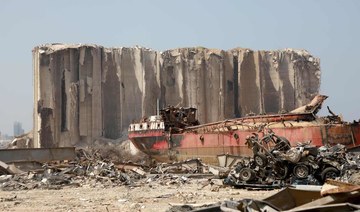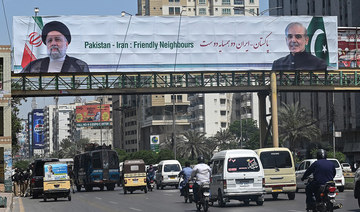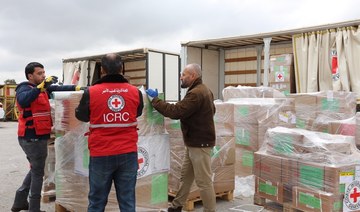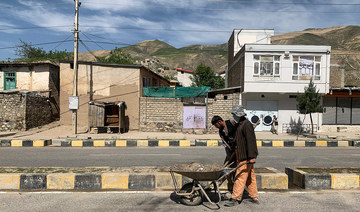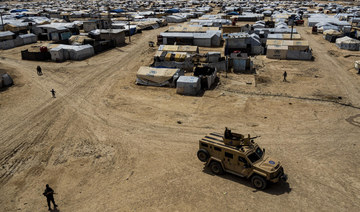BEIRUT: The World Bank has announced the cancellation of $244 million in funds for the Bisri Dam project in Lebanon after repeatedly raising concerns about the project since January.
The Bank said on Friday in a statement that the Lebanese government had failed to address questions about an ecological compensation plan and arrangements for operations and management of the dam.
The decision comes just weeks after Lebanese Instagram users launched an online campaign criticizing the Bank after it published a post highlighting its commitment to halting corruption.
“Halt all funding toward the bisri dam project in lebanon. This is a scheme orchestrated by lebanese corrupt politicians to siphon even more money into their pockets. The bisri dam project is a financial and environmental disaster that will scar the country for years on end @worldbank @savebisri,” Lebanese Instagram user and podcast host Mouin Ali Jaber commented.
Abraham Helal, another user, wrote: “Before you provide any funding to any project in Lebanon, make sure you understand that with the current political framework, you are funding corruption.”
Scores of Lebanese commented on the World Bank post that was uploaded in August with the caption: “How is your country addressing #corruption? Corruption has modernized, so should anti-corruption initiatives. The World Bank’s commitment to helping countries control corruption dates to 1996 when then President James Wolfensohn made his ‘cancer of corruption’ speech. #Corruption has evolved over the last two decades as well as in the course of the #COVID19 response. Find out how the World Bank’s approach towards anticorruption is also evolving.”
Controversy has plagued the Bisri Dam project since it was proposed in 1953. The venture took off in 2014 after the country’s cabinet approved the World Bank leading the project under its Water Supply Augmentation Project of Lebanon.
The government says the dam will help Lebanon solve its chronic water shortage, but protesters are worried about the project’s environmental impact. The dam, located 35 kilometers south of the capital, will generate clean and continuous water for 1.6 million people residing in Greater Beirut and Mount Lebanon, according to the World Bank.
Of the total cost of $617 million, $474 million was to be provided by the World Bank. The dam was expected to be completed five years from the date the construction contract was signed.
Six years later, the dam remains unbuilt and the World Bank’s official website states its closing date as June 30, 2024. Of the money the Bank had committed to fund the project, $244 million remains undisbursed.

“This project allows the political elite to claim big achievements, especially at a time when the legitimacy of the political system in Lebanon is being really shaken,” Roland Nassour, environmental activist and coordinator of Save the Bisri Valley campaign, told Arab News. He says the project is “unnecessary” and involves “harmful expenses.”
Lebanon is going through an unprecedented economic crisis that has seen its official currency, the lira, lose over 80 percent of its value. The country remains in turmoil since mass protests denouncing the political elite — long blamed for corruption and patronage — began to fill the streets of Beirut and other cities on October 17.
Following the explosions on August 4, Beirut was left a traumatized, shell-shocked city, with at least 190 people killed, over 6,500 injured and more than 300,000 people left homeless. The Syndicate of Restaurant, Cafe and Cabaret Owners Council issued statistics showing that 1,408 out of 2,103 institutions were damaged in the Greater Beirut area, which includes Gemmayze, Mar Mikhael and Achrafieh.

The Bisri Valley was going to be upended to make room for a dam, but the Lebanese government failed to commit to promises it made that sought its extension. (Samer El-Khoury)
Some are calling for the World Bank funds meant for the dam to be used for rebuilding Beirut and financing public-assistance programs. But they suspect Lebanon’s political elites have different plans.
Nassour says politicians were using the Bisri Dam project to allocate contracts to companies connected to them or owned by them. “There is direct financial benefit and a symbolic one of advertising themselves as achievers,” he said.
In April, the World Bank froze its funding in order to facilitate a dialogue with citizens and civil society groups opposing the project. The groups insisted that the dam would have long-term negative ecological and environmental impacts, as well as result in the destruction of dozens of archeological heritage sites in Bisri Valley.
Before it resigned in July, Prime Minister Hassan Diab’s cabinet had filed a request for a three-month extension to the July 22 deadline set by the World Bank for the resumption of construction but was only granted six more weeks until September 4.
In the statement issued on Friday, the World Bank said it had notified the Lebanese government about the funds cancellation, which takes effect immediately. It said it had also repeatedly underscored the need for “an open, transparent and inclusive consultative process.”
Activists had set up camps in Bisri Valley with the intent to stay until the project was entirely scrapped.
“We will be borrowing $600 million, and we don’t know if the project will even be a success,” Samer El-Khoury, activist and co-founder of Minteshreen, a youth movement born out of the Lebanese protests, told Arab News before Friday’s development.
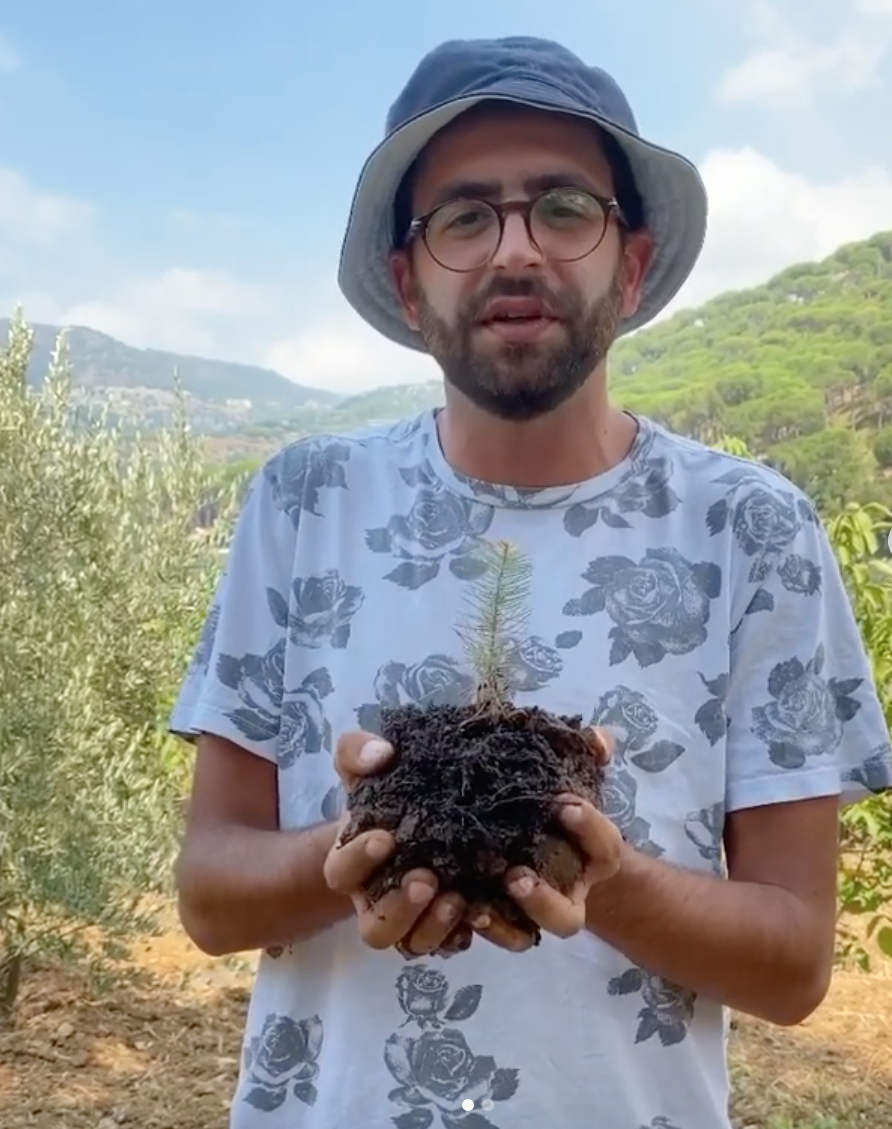
Samer El-Khoury, one of the activists leading the sit-ins in the Bisri Valley. (Instagram)
“But we do know that the dams they’ve built so far are really bad and inefficient. We also realize that elsewhere in the world, not only Lebanon, people are destroying dams. I don’t see what’s good about it.”
Earlier, Nassour said the campaigners submitted several complaints to the World Bank’s inspection panel, adding that they were considering filing a suit in the US Federal Court under the Alien Tort Claims Act.
“The campaign moved the issue to the global level with many international groups and the Lebanese diaspora today working together,” Nassour said. “There’s a lot of international pressure to stop this project.”
Protests against the construction of the Bisri Dam have been staged both in Lebanon and abroad. Expats in the UK opposed to the project held protests outside the World Bank’s London office in Westminster.
“The whole diaspora has been really a big part of this and has made a great, positive impact,” El-Khoury said. “They should keep on protesting at World Bank offices against the dam.”
He said the campaigners in Lebanon have been in constant contact with the diaspora in Montreal, London, Washington, D.C. and Paris regarding protests and initiatives in order to maintain a united voice.
Twitter: @Tarek_AliAhmad









